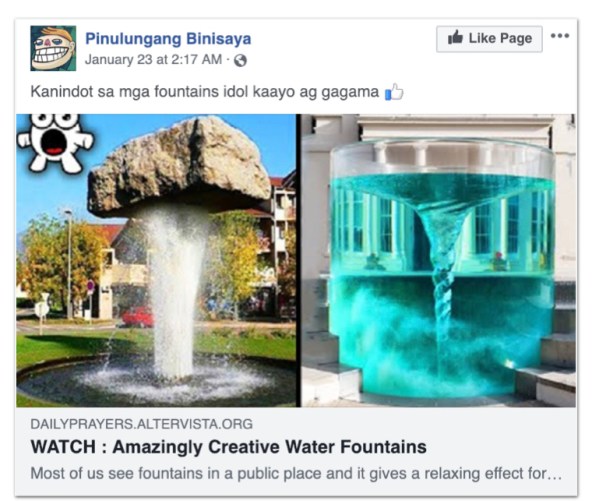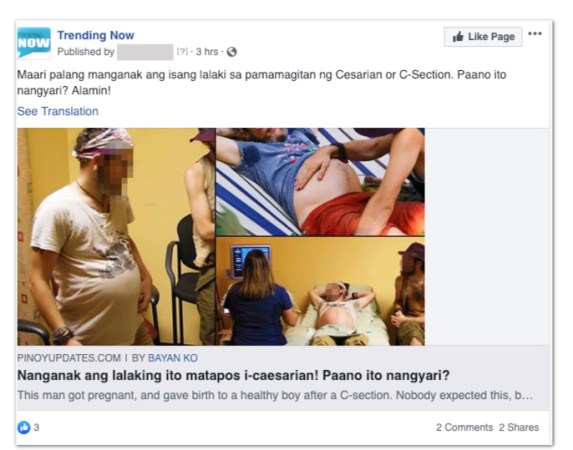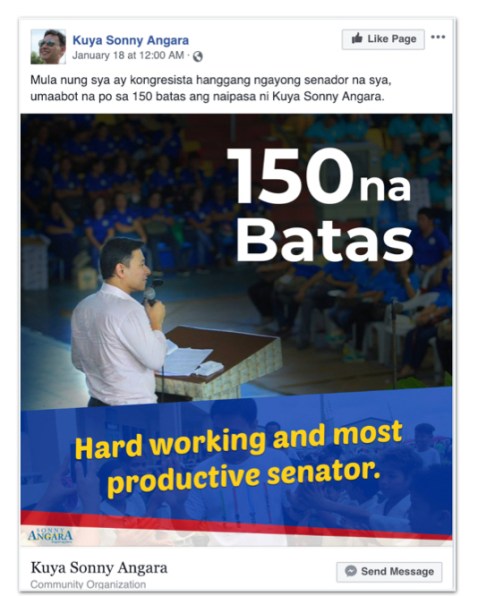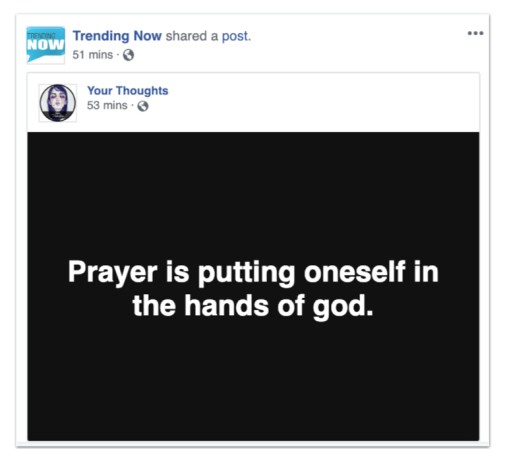By Nathaniel Gleicher, Head of Cybersecurity Policy
Today we removed 200 Pages, Groups and accounts that engaged in coordinated inauthentic behavior on Facebook and Instagram in the Philippines, misleading others about who they were and what they were doing.
We are constantly working to detect and stop this type of activity because we don’t want our services to be used to manipulate people. We’re taking down these Pages and accounts based on their behavior, not the content they posted. In this case, the people behind this activity coordinated with one another and used fake accounts to misrepresent themselves, and that was the basis for our action.
While we are making progress rooting out this abuse, as we’ve said before, it’s an ongoing challenge and we constantly have to improve to stay ahead. That means building better technology, hiring more people and working more closely with law enforcement, security experts and other companies.
We’ll update this post with more details when we have them, or if the facts change.
What We’ve Found So Far
The individuals behind this activity used a combination of authentic and fake accounts to disseminate content across a variety of Pages and Groups. They frequently posted about local and political news, including topics like the upcoming elections, candidate updates and views, alleged misconduct of political opponents, and controversial events that were purported to occur during previous administrations. Although the people behind this activity attempted to conceal their identities, our investigation found that this activity was linked to a network organized by Nic Gabunada.
- Presence on Facebook and Instagram: 67 Pages, 68 Facebook accounts, 40 Groups and 25 Instagram accounts.
- Followers: About 3.6 million accounts followed one or more of these Pages, about 1.8 million accounts joined at least one of these Groups and around 5,300 accounts followed one or more of these Instagram accounts.
- Advertising: Around 59,000 USD in spending for ads on Facebook paid for in Philippine peso, Saudi riyal and US dollars. The first ad ran in January 2014 and the most recent ad ran in March 2019.
We identified these accounts and Pages through an ongoing internal investigation into Philippines-linked coordinated inauthentic behavior. Our assessment benefited from open source reporting. We have shared relevant information with policymakers and industry partners.
Below is a sample of the content posted by some of these Pages:

Photo text: “Comfortable Life for all”








